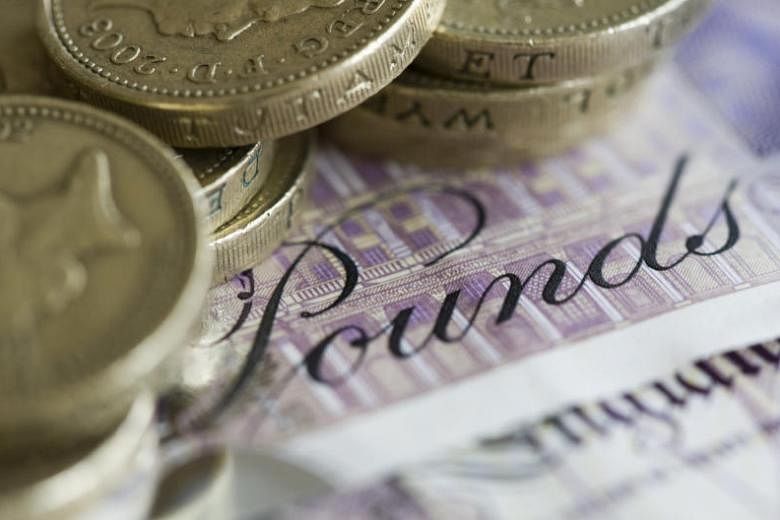LONDON (REUTERS) - Sterling tumbled to its weakest since April 2017 on Monday (Dec 10) after Prime Minister Theresa May pulled a parliamentary vote on her Brexit deal with the European Union, panicking investors about deepening political uncertainty in Britain.
May said on Monday she was delaying the planned vote as her deal would likely be rejected "by a significant margin". Colleagues had told May that she faced a rout in the vote, that was set for Tuesday (Dec 11).
The move thrusts Britain's exit from the European Union into further confusion, with possible options including a disorderly no-deal Brexit, another referendum on EU membership, or a last minute renegotiation of May's deal with Brussels.
May said she would do all she could to secure further assurances from the EU on the so-called backstop arrangement, a crucial part of the deal bitterly opposed by many of her fellow conservatives and opposition parties.
"Uncertainty is the only thing hitting the pound at the moment," said Kallum Pickering, an economist at Berenberg.
The pound fell 1.6 percent against the dollar to as low as US$1.2507, the majority of the losses coming after May confirmed she was delaying the vote. Against the euro, the pound dropped 1.5 percent to as weak as 90.875 pence, its lowest since August.
"Britain's exporter-heavy FTSE 100 index, which usually rises when sterling falls, succumbed to widespread selling pressure and fell 0.8 percent as investors fretted about the consequences of the political chaos for UK companies."
The more domestic FTSE 250 index tumbled nearly 2 percent. Perceived safe-haven British government bonds rallied, with 10-year British government bond yields falling 7.5 basis points to 1.19 percent, the lowest since mid-August.
The pound has fallen for four consecutive weeks with traders struggling to comprehend the vote options and consequences.
Earlier, the EU's top court had ruled on Monday that Britain could unilaterally reverse its decision to leave, easing concerns about Britain crashing out of the bloc in March without a deal.
But analysts said sterling's weakness on Monday reflected deepening uncertainty as well as concerns about May's future as prime minister.
"May is now expected to make a late dash to Brussels in a frantic bid to renegotiate the deal but her position is no doubt becoming increasingly untenable," said David Cheetham, market analyst at online broker XTB.
Before the vote was delayed, analysts had been focusing on the number of votes May could win or lose by and what that could mean for her chances of renegotiating a deal. Some analysts saw a silver lining.
Pickering at Berenberg said that he believed May's delayed vote would end with the British parliament gaining a greater say on the withdrawal agreement and the sort of Brexit that the UK gets.
"This is ultimately a process towards softer Brexit so the pound is reacting more to the uncertainty because, from my point of view, this is mostly a positive development," he said.











